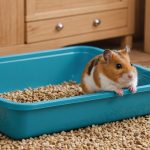Understanding Cavalier King Charles Spaniel Health Needs
When it comes to the health needs of Cavalier King Charles Spaniel, there are specific breed traits that require keen attention. These adorable pups are known for their friendly nature and are often quite content with a sedentary lifestyle. However, this can lead to certain health challenges.
One significant concern is the risk of obesity. This breed tends to gain weight easily, especially if their exercise and diet are not strictly managed. Obesity can lead to a variety of health issues such as joint problems, heart conditions, and reduced life expectancy. Owners must ensure a balanced diet and regular physical activity to maintain their dog’s health.
Also to see : Top Proven Techniques to Prevent Separation Anxiety in Your Border Collie Puppy
Understanding the lifestyle requirements of a Cavalier King Charles Spaniel is crucial to their well-being. Daily walks and play sessions are beneficial, not only for physical health but also for mental stimulation. Additionally, routine vet check-ups are essential to monitor their weight and overall health.
The distinctive breed traits of the Cavalier King Charles Spaniel, like their affectionate disposition, should be complemented with attentive care to their health needs. By addressing these needs, owners can enjoy watching their spaniel thrive while mitigating the risks associated with obesity and sedentary habits.
This might interest you : Essential Guide to Preparing Your Bullmastiff for Therapy Dog Certification: Step-by-Step Tips and Techniques
Effective Dietary Guidelines
Understanding the intricacies of dog nutrition can play a crucial role in weight management and overall health for your pet. To ensure optimal health, selecting the right food is paramount. Foods high in protein and formulated with whole grains, vegetables, and fruits often form the basis of sound dietary recommendations. These components provide essential nutrients, vitamins, and minerals that nourish your dog’s body effectively.
Portion control is another critical aspect. Feeding your dog with appropriate portion sizes helps to prevent obesity and maintain a healthy weight. Portion sizes should be tailored according to your dog’s age, breed, and activity level, and it’s worth consulting a veterinarian to create the most suitable feeding plan.
Establishing a fixed feeding schedule also supports effective weight management. Predictable meal times can help regulate appetite and digestion, promoting a healthier life.
Lastly, keeping an eye on the importance of monitoring treats and avoiding excessive table scraps cannot be overstated. While treats can be excellent training aids, they should be given sparingly and factored into your dog’s daily caloric intake. Limiting table scraps ensures your pet doesn’t consume unhealthy, fatty foods that could lead to weight gain or health issues.
Engaging Exercise Routines
Creating effective dog exercises can significantly enhance your pet’s health and happiness. Cultivating a regular routine involving both indoor and outdoor fitness activities is essential for keeping dogs active across various environments.
Outdoor Activities
Walking is an excellent outdoor activity for dogs, offering significant benefits based on walk duration and intensity. Gradually increasing the walk’s pace or length can enhance your dog’s cardiovascular health. Always prioritize safety by using appropriate leash training methods and following safety tips, such as ensuring a secure leash fit and avoiding overly crowded areas.
Exploring diverse environments keeps walks exciting and stimulates your pet’s senses. Parks, nature trails, and other safe spaces are perfect for varied experiences that enrich your dog’s explorations.
Indoor Exercises
Indoor activities are equally important for maintaining your dog’s exercise regime. Incorporate fun games like fetch or tug-of-war to boost physical activity indoors. Combining these activities with mental stimulation can promote overall well-being. Use puzzle toys or training exercises to keep their minds engaged, especially in limited spaces.
Socialization and Play
Playtime with other dogs is crucial for developing strong social skills. Group play not only encourages socializing with other dogs but also facilitates physical fitness. Choose dog-friendly environments like dog parks, where your pet can interact safely. Always supervise play to ensure a positive and secure experience for all dogs involved.
Monitoring Weight and Health Progress
Regular weight tracking and consistent health monitoring are crucial for maintaining your pet’s well-being. With the aid of various tools, you can efficiently track any changes in your pet’s weight. From simple weighing scales to advanced apps that sync with your devices, these solutions make it easier to stay informed about significant fluctuations.
For pets that are prone to gaining weight, discerning the signs of being overweight is vital. Excessive panting, difficulty in movement, and visible abdominal fat are clear indications that your pet might be carrying extra pounds. Identifying these signs early can prevent more serious health issues down the line, such as arthritis or diabetes.
Including regular veterinary check-ups in your pet care routine is also essential. Vets provide expert veterinary guidance, ensuring that any potential health concerns are addressed promptly. They can also offer valuable advice tailored to your pet’s specific needs, helping you implement effective measures for sustained weight management.
Utilising a combination of weight tracking tools and maintaining a robust health monitoring schedule allows pet owners to proactively care for their pets. This holistic approach not only improves your pet’s quality of life but also strengthens the bond between you and your furry friend.
Expert Advice on Obesity Prevention
In the domain of pet care, veterinary advice is paramount when addressing obesity prevention, particularly with Cavalier breeds. Pet health experts continuously underscore the importance of tailored exercise routines. This Cavalier-specific management prevents weight gain while promoting overall well-being. Veterinarians highlight the significance of understanding each pet’s unique exercise needs, showcasing their role in recommending suitable activity levels for Cavaliers.
One notable insight from veterinarians is the breed’s propensity toward a sedentary lifestyle. Encouraging active routines is necessary to counteract this tendency. Regular playtime, accompanied by structured walks, can significantly contribute to maintaining a healthy weight. Pet health experts often suggest engaging in interactive games, which can captivate a Cavalier’s attention and make fitness an enjoyable endeavor.
Long-term strategies to foster active living include establishing consistent schedules for physical activity. Integrating short exercise sessions into daily routines helps sustain interest and vigour. Pet care strategies emphasize the importance of monitoring progress, ensuring activities are age-appropriate and health-conscious.
Consultations with pet health experts offer invaluable insights into fostering Cavalier-specific health. This advice arms pet owners with the necessary information to create lifestyle plans that benefit both their pet’s physical and emotional well-being. By heeding expert guidance, owners can combat obesity effectively, enhancing their pet’s life quality.
Integrating Fitness into Daily Routine
Incorporating fitness into your daily pet care routine is essential for maintaining both your and your pet’s well-being. A well-balanced routine starts with setting achievable fitness goals tailored to your pet’s specific needs. Knowing your pet’s breed, age, and health conditions helps determine suitable activities and exercise levels. Engage in regular walks or playtime, adjusting the duration and intensity as needed to ensure your pet receives the right amount of activity.
Encouraging owner engagement through fitness activities can lead to stronger bonds with your pet and personal health benefits. Involvement of family members in pet care is a great way to share responsibilities and increase the level of engagement for both humans and animals alike. Assign specific tasks like feeding, walking, or grooming to different family members, fostering a sense of teamwork.
Achieving fitness incorporation doesn’t mean drastic changes to routines. Simple strategies, such as playing a game of fetch or incorporating short training sessions, can seamlessly fit into daily life. Create a game plan that suits your lifestyle and stick to it; whether it’s a morning jog or an evening wind down with your pet, these routines strengthen the human-animal connection while promoting overall health.
Importance of Fitness for Cavalier King Charles Spaniels
Understanding the significance of fitness for your Cavalier King Charles Spaniel is crucial. This charming breed is prone to dog obesity, which is a prevalent issue affecting numerous pets. When considering Cavalier King Charles Spaniel fitness, being aware of this tendency is the first step in ensuring their continued health and happiness.
Obesity poses substantial health risks for Cavalier King Charles Spaniels. Not only does it increase the likelihood of joint problems and heart disease, but it can also lead to diabetes and a reduced lifespan. These risks highlight the importance of active intervention to promote fitness and prevent the deterioration of your pet’s quality of life.
The health benefits of exercise cannot be overstated. Regular physical activity ensures a healthy weight, essential for maintaining overall wellness. Dogs that engage in consistent exercise enjoy improved cardiovascular health, stronger muscles, and better mental stimulation. Furthermore, an active lifestyle helps prevent dog obesity, keeping weight-related issues at bay.
Incorporating a fitness routine into your Cavalier King Charles Spaniel’s daily life is a practical step toward ensuring their well-being. Engaging in fun and interactive activities not only strengthens your bond but actively contributes to preventing health complications associated with excess weight. Keep your furry friend happy and healthy with a balanced exercise plan.
Effective Exercise Routines
Creating a balance between structured exercise routines and play can be incredibly beneficial. Many cavalier owners find that integrating their pet’s energy with daily tasks can enhance the effectiveness of these routines.
Daily Walks and Activities
For cavalier exercise routines, daily walks are essential. They provide not only physical exercise but also mental stimulation as your dog encounters different environments. Setting a regular walking schedule helps your pet understand expectations and can reduce anxiety. Integrate your cavalier into daily activities like walks to the store or visits to a nearby park. This consistency ensures both mental and physical health benefits.
Interactive Play Sessions
Playful engagement with your dog using interactive toys can boost both their cognitive and physical development. Toys that stimulate movement and thinking, such as treat-distributing toys or puzzle feeders, contribute significantly. Allocate time each day specifically for such interactive play sessions to break up sedentary periods.
Agility Training and Challenges
In addition to walks and playtime, agility training offers a more structured activity. Create a simple agility course using household objects to form challenges. This not only exercises their body but also stimulates their mind—perfect for cavalier owners looking to add fun, playful aspects to the regular routine. Regular participation in these activities builds confidence and strengthens the bond between you and your pet.
Dietary Recommendations
When considering nutrition for dogs, particularly the delightful Cavalier King Charles Spaniel, a well-rounded diet is crucial. These dogs require a balance of essential nutrients for optimum health and vitality. Cavalier diet tips emphasise incorporating high-quality proteins to support muscle maintenance, healthy fats for a shiny coat, and carbohydrates for energy. Additionally, vitamins and minerals are necessary for bone health and immune function.
Portion control is equally important, as overfeeding can lead to obesity, a common issue in Cavaliers. It’s advised to follow feeding guidelines provided by dog food manufacturers or consult a veterinarian for personalised advice. Implementing a feeding schedule helps maintain consistent energy levels and prevents hunger-induced behaviour issues. Most adult Cavaliers do well with two meals per day.
Selecting dog foods specifically designed for weight management is another critical aspect. Brands that offer tailored formulas often contain ingredients that support weight control without compromising on nutrition. Look for options that are low in calories yet rich in nutrients to keep your Cavalier satisfied without adding extra pounds. Remember, every dog is unique, so it might take some trial and error to find the perfect balance that meets your Cavalier’s individual needs.
Recognizing Signs of Obesity
Monitoring your Cavalier King Charles Spaniel’s health is crucial in ensuring their well-being. There are visual cues and behavioral changes to watch for that can indicate your dog might be experiencing obesity. One of the primary dog obesity signs is noticing changes in their body shape. For instance, an expanded waistline or if you struggle to feel their ribs through a light layer of fat might suggest weight gain. Cavalier King Charles Spaniels getting a bit rounder around the middle can be an early warning sign.
Another essential aspect of health monitoring is regular veterinary check-ups. Your vet can provide a more accurate assessment of your dog’s weight and offer guidance on how to manage it. Consistent vet visits also help monitor potential health risks associated with obesity.
In addition to visual indicators, owners should be attentive to behavioral changes. Weight gain can lead to decreased energy levels, reluctance to play, or difficulty in performing activities they previously enjoyed. If your Cavalier seems more lethargic or experiences shortness of breath, it might be time to reassess their lifestyle habits.
Recognizing and addressing these signs early can help prevent obesity-related issues and ensure a healthier life for your beloved companion.
Expert Insights and Resources
To navigate the complex landscape of dog health, tapping into a wealth of expert advice ensures you make well-informed decisions for your furry friend.
Consulting with Veterinarians
Veterinary advice is paramount when addressing any health concerns for your dog. Vets offer tailored expert recommendations that consider your pet’s unique needs. They can diagnose illnesses, suggest treatments, and guide you on preventive care. Leveraging their expertise ensures you have a reliable source when navigating the intricacies of canine health.
Dog Fitness Apps and Tools
In today’s digital age, dog fitness apps and tools serve as valuable resources. These technological options track exercise frequency and dietary habits, offering insights into your pet’s health. Many apps provide features to monitor your dog’s calorie intake and recommend exercise routines—empowering owners with practical insights into their dog’s fitness journey.
Recommended Reading Material
Educating yourself with articles and studies on canine obesity and fitness is an invaluable practice. These resources highlight the importance of nutrition and exercise in maintaining a healthy weight. Well-researched books and papers present comprehensive knowledge, ensuring you understand the nuances of pet health. With an emphasis on scientific backing, the recommended reading material deepens your understanding and informs your actions with evidence-based data.
Supporting a Fit Lifestyle
Promoting canine fitness goes beyond simple exercise; it requires both dedication and creativity from pet owners to ensure their furry companions stay active and healthy. Engaging in activities that involve both owner involvement and canine participation is a fun and effective way to incorporate exercise into daily life. A simple stroll in the park or a game of fetch can serve as a delightful workout for you and your dog.
Additionally, establishing a community that encourages accountability for dog health can significantly bolster maintaining healthy habits. Consider joining local dog groups or online forums that focus on fitness activities, where members share tips and challenges, creating a supportive environment for both physical and mental enrichment. This sense of community can propel you to remain committed to your and your pet’s well-being.
Owners serious about promoting canine fitness should weave exercise into everyday routines. Morning jogs, interactive toys, and agility training can be fantastic ways to keep the heart rate up for both parties. Taking these initiatives ensures that staying fit becomes a lifestyle rather than a chore. This balanced approach to fitness benefits not just your dog’s physical health, but also their overall happiness, while reinforcing the bond between you and your pet.











